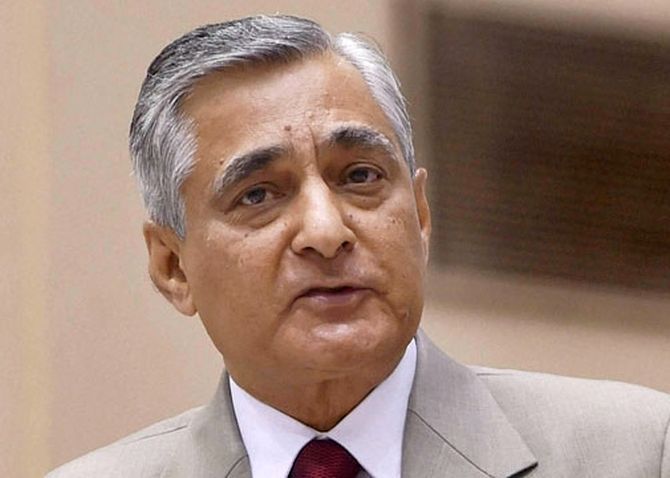Chief Justice of India Justice T S Thakur on Saturday said that "corresponding upgradation" of judiciary was a must to face the challenges of emerging social and economic scenario and observed that "unpolluted and speedy justice still remains a distant dream".

Thakur said that the three pillars of our democratic set up have many challenges, which assume greater dimensions as we make all round progress, widening the gulf between haves and have nots.
In his address at 23rd convocation of Himachal Pradesh University in Shimla, Thakur said that "the judiciary as third pillar has its own challenges of making access to judiciary easy and unpolluted and speedy justice remains a distant dream for variety of reasons, especially when the country is making rapid strides on the developmental front".
"The legislature and executive face the formidable challenge of banishing poverty by preventing concentration of wealth in the hands of a few as a sizable section of people continue to suffer from all kinds of deprivation and the number of poor people is increasing ever year and challenges of clean drinking water, basic minimum health care, education and jobs for every able bodied person remains a daunting task even after 70 years of independence," he lamented.
Forty years of planned development, liberalisation and reforms has made India relevant to the world and enabled 700 million smartphones and 332 million internet users, but India's consumer story is led by 130 million urban consumers and is only one side of the story, he said.
He said that land reforms have remained an unfulfilled project since 1950s, growth carries burden of shrinking jobs, workforce falling into urban middle class constitutes only two per cent of the population, educated middle class facing reduction in jobs and technology was replacing the labour, as he stressed need for immediate re-skilling to be job relevant.
"A resurgent India faces challenges of global competitiveness, social inclusiveness, and environmental sustainability and it is not possible for the institutions handling these challenges without a resurgent idea of justice that is actually enforced. Increasing farmer suicides and resurgence cannot go together," he added.
Thakur said that the Constitution and directive principles guarantee social, economic and political justice for all without regard to caste, creed or colour and also ensure religious freedom but in a society long oppressed by foreign rule and stark social and economic disparities, constitutional objectives are not easy to achieve.
Presiding over the convocation, Governor Acharya Devvrat called for inculcating human values and said that the education is not only for earning bread and butter.
Asking the degree holders and medal winners to serve the society with missionary zeal and raise their voice against social evils like drugs and female foeticide, the governor also stressed the need to change the mindset about girls.
"Our daughters had always brought laurels to the nation, the recent example of which was Rio Olympics," he added.
Chief Minister Virbhadra Singh expressed happiness that girls had outnumbered boys in winning gold medals and PhD degrees at the convocation and exhorted students to preserve their traditions, customs and culture in march to prosperity.
Chief Justice of Himachal Pradesh high court Mansoor Ahmed Mir said that education has a two-fold function -- utility and culture -- and it must enable the pass outs to become more efficient and achieve the legitimate goal in life.
The students must be trained in quick, resolute and effective thinking and think logically and scientifically, he added.
Earlier, Justice Thakur was conferred with honorary degree of Doctor in Laws by the governor while Justice Bhawani Singh, former chief justice of Gujarat High Court was conferred PhD in law 'Honoris Causa'. As many as 189 students were conferred PhD degree while 143 toppers were awarded gold medals.







